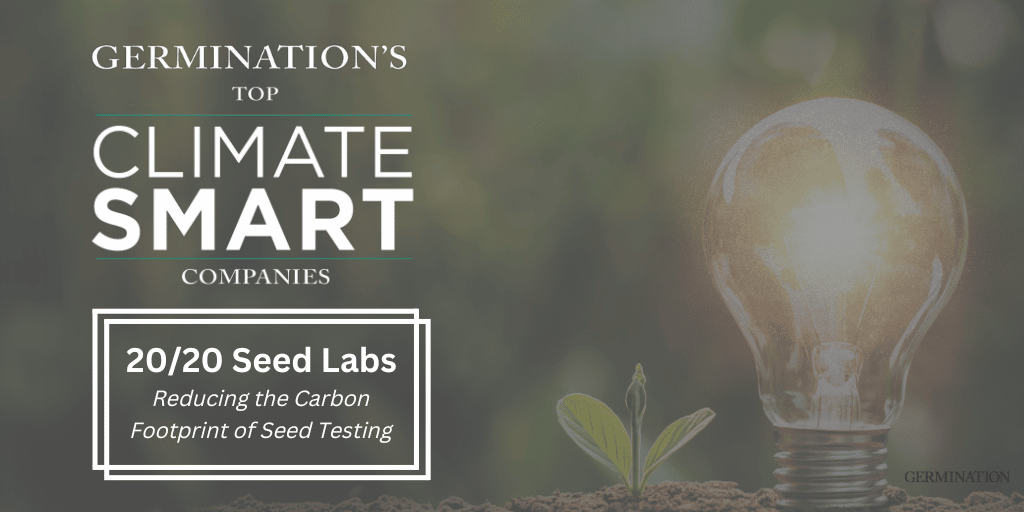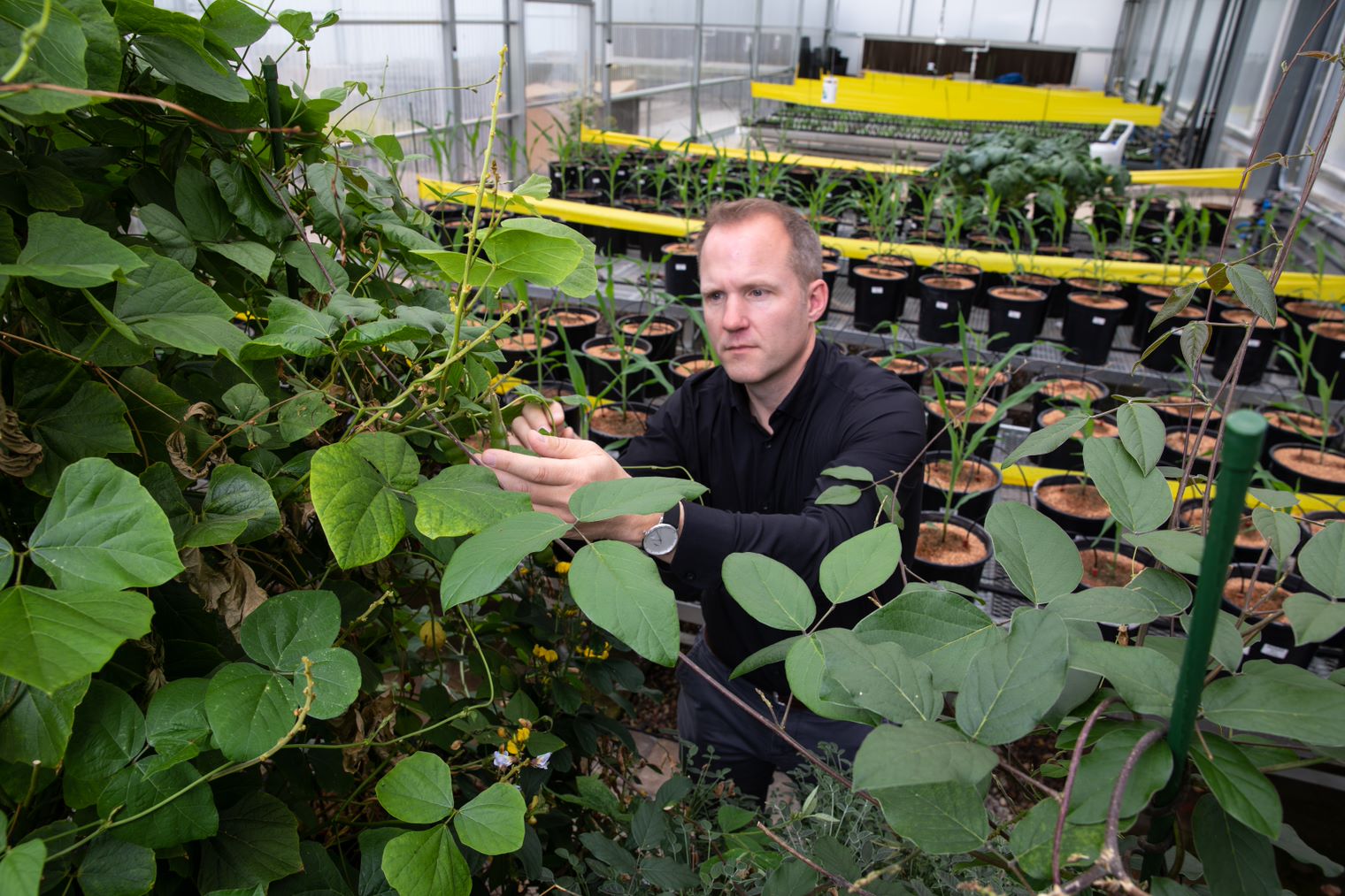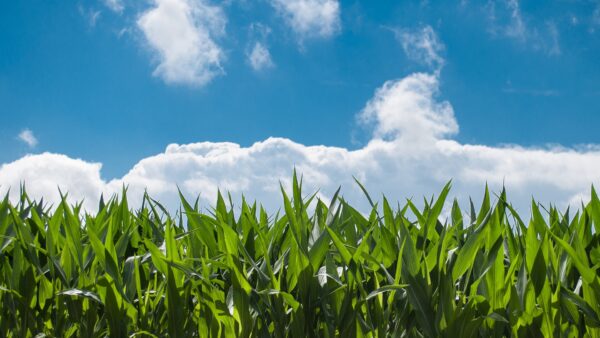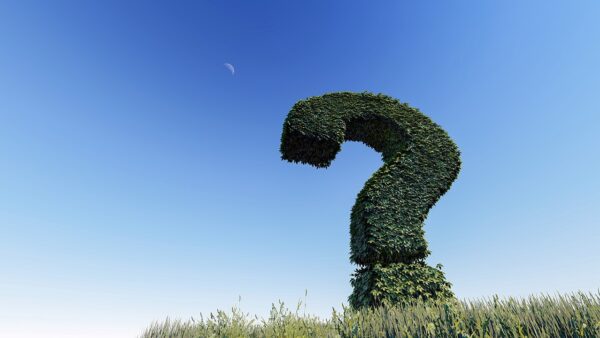Canada’s climate is changing. Higher temperatures, shifting rainfall patterns, extreme weather events and rising sea levels are just some of the changes already affecting many aspects of our lives.
Changes in climate will persist and, in many cases, will intensify over the coming decades. That will have significant impacts on Canadian communities through our economy, social well-being and environment.
We must understand these impacts and the options available to us if we want to build resilience through adaptation, reduce the associated risks and costs of climate change’s impacts, and support sound decision-making.
Germination put out the call for seed industry players who are making a difference in helping mitigate the effects of climate change. The qualifications? That the company have an active effect on mitigating the effects of climate change on Canada’s seed sector. Here’s the second of who we selected for 2022.
People don’t often think of seed testing labs as having a big carbon footprint, but it’s true. That’s why 20/20 Seed Labs believes in doing what it can to be environmentally conscious.
“We’re a huge user of electrical power — all the equipment, walk-in germinators, lights, computers, greenhouse, you name it. Everything requires electricity. We took a look at our energy bills and thought, ‘You know, Alberta has over 230 sunny days a year and if we could help to offset our power bills with solar power that would be a big help and a good thing to do,'” says 20/20 Seed Labs President Sarah Foster.
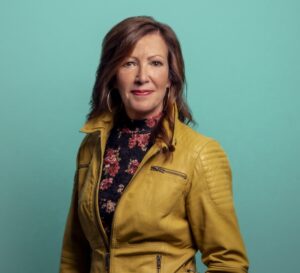
That’s why you’ll see 166 solar panels on the roof of 20/20 Seed Labs in Nisku, Alta. They feed power to the lab, storage room (which has to be temperature controlled for seed storage) and also the greenhouse, which is also a big user of power in the winter.
From there, they started to think about other recycling initiatives, Foster says.
Most compost is taken by staff for their home gardens, with the exception of any materials known to be diseased or otherwise potentially hazardous to the ecosystem. 20/20 is also planning to work with a local worm castings manufacturer, who will use the lab’s seedling waste to make their product for home gardeners.
The lab also manages seed from its archives. It’s gone from sending it to landfill to feeding animals and creating green spaces.
Foster is also looking at replacing the lab’s dishes and plates used for seed testing with biodegradable ones, thereby reducing the amount of water used to wash dishes at the lab.
“I don’t think we realized just how much water we were using, on top of the electricity. It’s become really important for us to do what we can to reduce our carbon footprint,” Foster says.
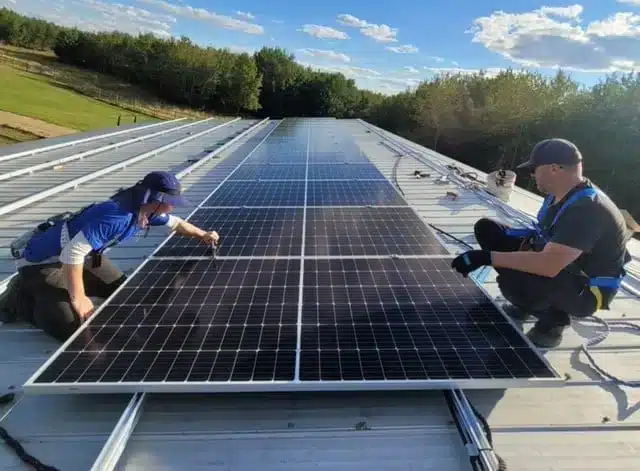
For more climate smart companies visit:
Ellis Seeds Shows How to Create a Climate-Smart Business Model



